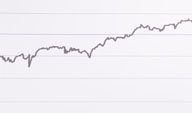Introduction to the CSDC’s Participation in China's First FSAP
China launched its first Financial Sector Assessment Program (FSAP) in August 2009 so as to honour its solemn commitment made at the G20 Summit in November 2008. The program was concluded in April 2012. As the operator of China’s securities settlement system, China Securities Depository and Clearing Corporation (CSDC), participated in the FSAP assessment of securities settlement systems.
I. Overview of FSAP
Drawing from lessons of the Asian Financial Crisis in 1997, the International Monetary Fund (IMF) and the World Bank (WB) jointly developed the FSAP in May 1999 to help strengthen the assessment and monitoring of financial vulnerabilities in IMF members countries and regions, to reduce the possibility of financial crises and promote financial reform and development.
FSAP involves the assessment of a country/region’s financial structure, the development of its financial industry, its financial sectors, and its financial supervision and infrastructure. The assessment of financial supervision mainly covers banking supervision, securities regulation, and insurance supervision. By comparing the supervisory practices of countries being assessed with the Basel Core Principles for Effective Banking Supervision issued by the Basel Committee on Banking Supervision, the Objectives and Principles of Securities Regulation issued by the International Organization of Securities Commissions (IOSCO), and the Insurance Core Principles and Methodology issued by the International Association of Insurance Supervisors, FSAP assesses the observance of international supervisory standards and codes item by item, evaluates the regulatory efficiency of the country/region concerned, identifies its risks and vulnerabilities, and proposes reform recommendations accordingly.
After several years of development and improvement, FSAP has become an internationally accepted framework for assessing financial stability. So far, over 130 countries and regions have completed their first assessment. Experience has shown that FSAP can help recognize vulnerabilities in financial systems, further push forward financial reforms, and strengthen the stability of financial systems.
The FSAP assessors mainly consist of staff from the IMF and WB, though external experts may be invited in some cases. After completing an FSAP, the IMF and WB will issue a series of assessment reports including the Financial System Stability Assessment and the Financial Sector Assessment. After the initial FSAP, an updated FSAP will be conducted every few years. So far, updated FSAPs have been conducted in about 50 countries and regions.
II. Brief Review of China’s First FSAP
The IMF-WB assessment of China officially started in August 2009. The assessment continued for three years and concluded with great success thanks to joint efforts from 12 relevant agencies including People’s Bank of China, China Banking Regulatory Commission, China Securities Regulatory Commission and China Insurance Regulatory Commission, as well as the IMF-WB China FSAP team. English versions of the main reports, including the Financial System Stability Assessment, the Financial Sector Assessment and the Detailed Assessment Report on the Observance of Standards and Codes (ROSCs) have been published on IMF and WB websites in two batches, respectively in November 2011 and April 2012.
Overall, the FSAP reports objectively assess China’s financial system from an international perspective, fully affirm China’s great achievements in financial reform and development in recent years, systematically analyze potential risks and their impact on macrofinancial stability, and propose constructive recommendations, providing some references for China to enhance the soundness of its financial system.
As one of the 25 countries and regions with a globally significant financial system, China will conduct an updated FSAP every five years and accept a “country peer review” on implementation by the Financial Stability Board two years after each FSAP.
III. FSAP Assessment of Securities Settlement Systems in China
The assessment of the observance of the Recommendations for Securities Settlement Systems by the securities settlement systems in China is an important part of securities supervision in China’s FSAP assessment of financial supervision.
(Ⅰ) Assessment contents and criteria
As mentioned above, the FSAP team assessed the securities settlement systems in China in accordance with the “principles relating to clearing and settlement” in the Objectives and Principles of Securities Regulation issued by IOSCO, i.e. Principle 30 “systems for the clearing and settlement of securities transactions should be subject to regulatory oversight and designed to ensure that they are fair, effective and efficient and that they reduce systemic risk”. However, a separate assessment methodology with respect to Principle 30 is not included in the Methodology for Assessing Implementation of the IOSCO Objectives and Principles of Securities Regulation, and it is recommended that any assessment should be made using the assessment criteria and methodology included in the CPSS-IOSCO Recommendations for Securities Settlement Systems issued in November 2001 and the Assessment Methodology for Recommendations for Securities Settlement Systems issued in November 2002.
In its first assessment of China’s securities settlement system, FSAP focused on the legal foundation, governance structure, business operation, risk management, technology system management, efficiency safety and regulation of the securities settlement system operated by CSDC. The assessment criteria were CPSS-IOSCO Recommendations for Securities Settlement Systems and Assessment Methodology for Recommendations for Securities Settlement Systems.
(Ⅱ) Assessment reports and findings
The outcome of the FSAP assessment of the securities settlement systems in China is reflected in the IMF-WB People’s Republic of China: Financial System Stability Assessment issued in November 2011 and the CPSS-IOSCO Recommendations for Securities Settlement Systems and Central Counterparties: Detailed Assessment of Observance issued in April 2012.
The CPSS-IOSCO Recommendations for Securities Settlement Systems and Central Counterparties: Detailed Assessment of Observance describes the assessment of the securities settlement systems in China in more detail. In terms of China’s observance of the Recommendations for Securities Settlement Systems, the report recognizes the significant role of securities settlement system in ensuring the steady growth of the securities market in the past two decades. However, the report also suggests that improvements should be made in such areas as risk management, governance and transparency, supervision and management, as well as cross-border link, and has proposed nine recommendations accordingly.
(Ⅲ) Follow-up
CSDC seriously studied and discussed the nine improvement recommendations proposed in the FSAP report, and attached great importance to the implementation of FSAP recommendations and the improvement of company operations. It pledged to promote its business and management level by incorporating FSAP recommendations into the Chinese securities settlement system.
CSDC’s disclosure of FSAP reports as well as its answers to key questions in the Assessment Methodology for Recommendations for Securities Settlement Systems is a specific initiative to implement the FSAP improvement recommendations with respect to transparency. Next, CSDC will work to make continuous improvements in areas such as risk management, governance and transparency, supervision and cross-border link in accordance with FSAP recommendations, so as to enhance the fairness, effectiveness and efficiency of the securities settlement systems in China, reduce systemic risks and bring them in line with the various requirements of international standards.









 Print
Print Close
Close